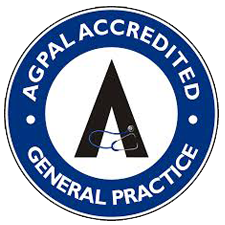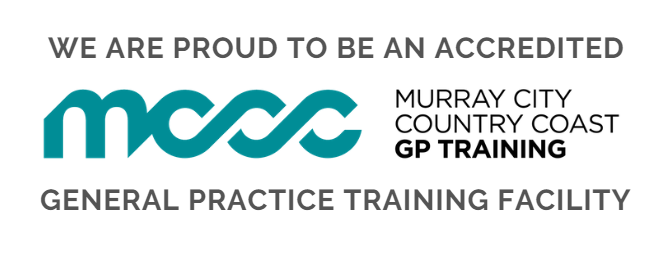Women’s Health Week- 5th-9th September
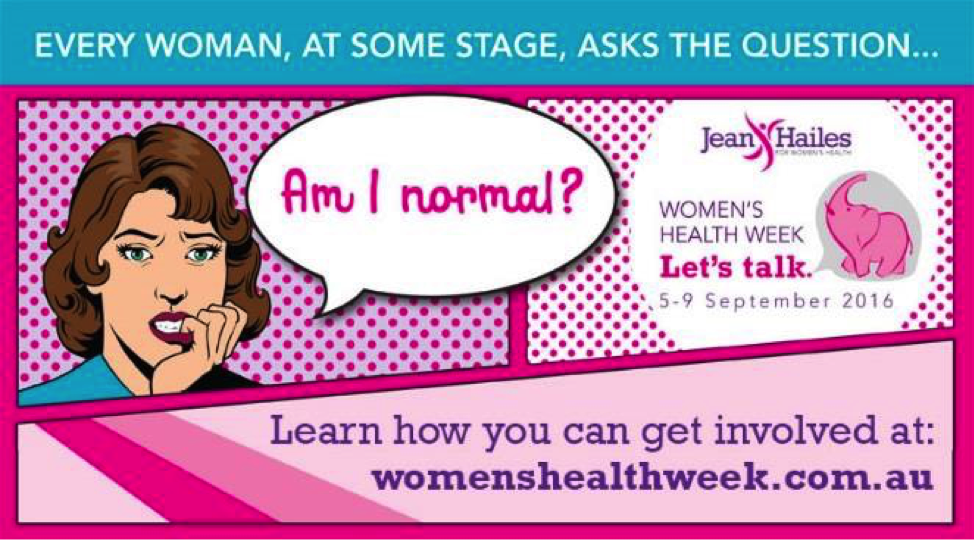
Women’s health week will be held this year in September running from the Monday 5th to Friday 9th. The week is about focusing on Women’s health, learning more and taking action.
In 2015 the new campaign was launched ‘No more elephants’ meaning it was time to get rid of the elephant in the room and get talking about women’s health.
Women are good talkers but often don’t take the time to ask questions and seek credible information that they need regarding their health.
During the five days of the 2016 Women’s Health week the campaign will focus on:
Monday: What is normal?
Tuesday: Body image-you are your worst critic
Wednesday: Healthy weight- know the three S’s
Thursday: Mental Health- what can you do?
Friday: Let’s talk about sex
We have brochures at the front desk for our patients to take. If you have any questions regarding your health and ‘what is normal’ please ask your general practitioner. Let’s get the elephant out of the room.

Dementia Awareness month

Dementia awareness month plays a big role in encouraging Australians to become more aware of dementia. The month helps people to hopefully develop a better understanding of symptoms that accompany Dementia as well as a better understanding of what it is like to live with the disease.
If you are concerned about changes in memory, thinking, behaviour or mood in yourself or someone you care about please contact Ontario Medical Clinic to make an appointment with your doctor. Your doctor may order tests to determine if there is a physical cause for your symptoms or refer you to a specialist.
Steptember
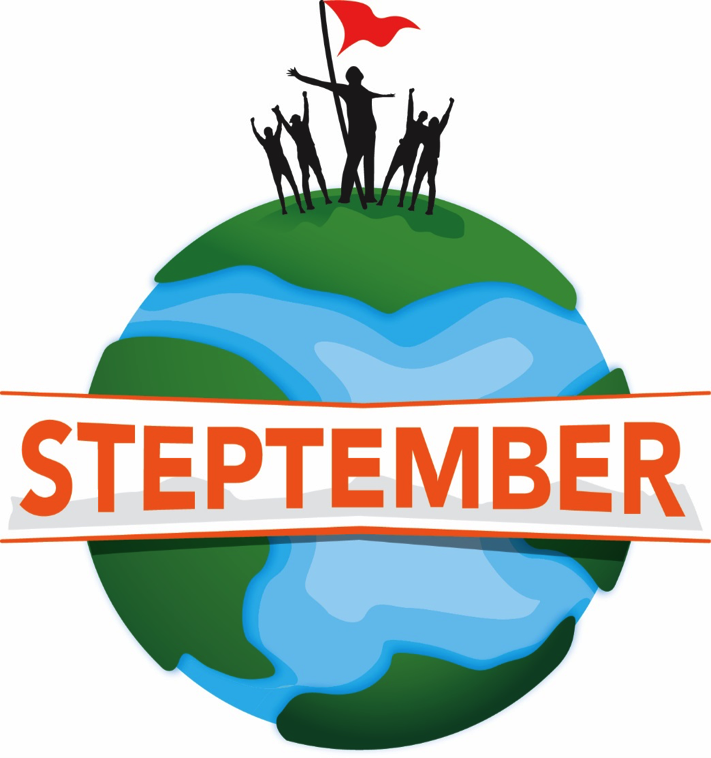
For the second year Ontario Medical Clinic have joined in the fun for the month of September and are helping raise awareness and funding for people with Cerebral palsy. We are taking on the challenge of taking 10,000 steps a day for the month knowing that every step we take and money raised will help to provide vital equipment, therapy and services to children and adults living with cerebral palsy.
Cerebral palsy is an umbrella term that refers to a group of disorders affecting a person’s ability to move. It is due to damage to the developing brain either during pregnancy or shortly after birth. CP affects people in different ways that may include muscle control and coordination, posture and balance. They may also suffer from visual, learning, hearing and speech impairments.
Please feel free to ask reception staff how you can support the Steptember cause.
Daffodil Day – Friday 26th August, 2016
Unfortunately most of us know someone who has been affected by cancer, however cancer research is discovering new and better treatments. Cancer prevention campaigns are working, and support for those affected by cancer is improving all the time.
Ontario Medical Clinic are showing our support and helping to make a difference by supporting the cause and selling merchandise at our front desk.
Your support will help make a difference for cancer patients and their families all over Australia.
$5- Helps reach out to a newly diagnosed cancer patient, with support and information resources to help them navigate their cancer journey.
$25- Funds resources to support GP’s and health professionals advising patients on cancer prevention, screening and diagnosis.
$50- Ensures a cancer nurse is available on our free, confidential telephone service to offer support on all aspects of cancer.
$100- Allows the organisation to support childcare centres and primary schools taking part in the National SunSmart Schools Program.
$500- Helps fund the provision of telephone and web-based support groups facilitated by trained peer volunteers and health professionals.
My Health Records
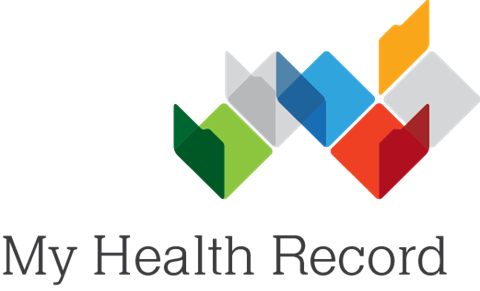
My Health Record is a digital health record that can keep your important health information like any allergies, medical conditions, treatments and medicines all in one place online.
Ontario Medical Clinic believes having a My Health Record can help you and your clinicians better manage your care over time. When you’re being seen and treated by different healthcare providers, it can be challenging to keep track of all your health information. My Health Record is a secure online summary of your important health information, making it easier for the health professionals involved in your care to make decisions about your care.
My Health Record travels with you, so you don’t need to worry about remembering and repeating all of your medical history. It also allows for faster administering of appropriate healthcare which can be especially important in an emergency. There is even a private section of the My Health Record where you can add your own personal health notes that won’t be seen by any health professionals – like a private health diary.
Just as other technologies have revolutionised the way we manage our lives, having a My Health Record has the potential to change how we manage our health care.
To find out more click here, Go to myhealthrecord.gov.au, call 1800 723 471 or visit a Medicare Service Centre.
Video
This video showcases the story of consumer user Ian Gillies as he talks about the benefits of having a My Health Record. His GP, Dr Chris Moy speaks about his experiences in using Ian’s record also.
Jeans for Genes Day – 5th August, 2016
On the first Friday of August every year Australia unites by wearing their favourite jeans and donating money to support genetic research, helping scientists at the Children’s Medical Research Institute. Research is aimed at genetic defects and childhood diseases and money raised helps to discover treatments and cures to give children the opportunity to live long and healthy lives.
It is a great cause that the staff at Ontario Medical Clinic continues to support each year. Merchandise may be purchased at the front desk.
Diabetes Awareness Week 10th -16th July
National Diabetes Awareness Week is a national week aimed at raising awareness of diabetes and the growing number of people who have it. This year national Diabetes week is run from the 10th to the 16th July.
Diabetes is a serious and complex condition which can affect the entire body.
There are different types of diabetes; all types are complex and serious. The three main types of diabetes are:
Type 1 diabetes is characterised by a lack of insulin production. Insulin is a hormone that is needed to convert sugar, starches and other food into energy essential for general day to day life. Long healthy lives are achievable through insulin therapy, exercise, nutrition and proper blood glucose management techniques.
Type 2 diabetes is much more common than type 1 diabetes, and accounts for around 90% of all diabetes worldwide. A type 2 diabetic means that the body does not use insulin properly, this is called insulin resistance. At first the pancreas will make extra insulin but over time it isn’t able to keep up and can’t make enough to keep the blood glucose at normal levels. The cells are starved for energy and gradually high levels may hurt your eyes, kidneys, nerves or heart.
A third type of diabetes is gestational diabetes. This type is characterised by hyperglycaemia, or raised blood sugar, which is first recognised during pregnancy.
Diabetes can be prevented. Thirty minutes of moderate-intensity physical activity on most days and a healthy diet can drastically reduce the risk of developing type 2 diabetes. Our doctors use medications if required, encourage increased exercise and provide patient counselling. Doctors refer to Dieticians, Diabetic Educators and Endocrinologists who specialise in diabetes. These practitioners work together with patients to optimise diabetic control.
If you would like to make an appointment to see one of our General Practitioners please phone our clinic on 5023 7311 or book online.
Sleep Awareness Week 4th-10th July
Sleep Awareness Week runs from the 4th to the 10th July 2016.
Getting to sleep at night can prove to be quite difficult for some people. What works for some people may not work for others, so the secret is to experiment. It is important to firstly find out how much sleep is enough for you. As a general rule most healthy adults need at least eight hours sleep each night to function at their best.
The following tips may help you achieve a better night sleep.
- Set a regular bed time and try to wake up at the same time every day. This routine will get your brain and body used to being on a healthy snooze-wake schedule. If you need an alarm clock to wake up on time, you may need to set an earlier bedtime as if you are getting enough sleep you should wake up naturally without one.
- Try to make dinnertime earlier in the evening avoiding large heavy meals within 2 hours of bed. Fatty foods should be avoided as they take a lot of work for your stomach to digest and may keep you up. Spicy or acidic foods can also cause stomach trouble and heartburn.
- Turn off TV’s, computers, phones and other blue-light sources an hour before you go to bed.
- Avoid alcohol and caffeine. Alcohol can make you sleepy at bedtime but after its initial effects wear off it will make you wake up more often reducing your sleep quality. Caffeine can cause sleep problems. Coffee in the morning is fine for most people but consider eliminating caffeine found in food and drinks after lunch or cutting back your overall intake. Even small amounts found in chocolate can affect your sleep later that night. Nicotine is also a stimulant, just like caffeine it can also keep you from falling asleep.
- Drinking too many liquids in the evening can result in frequent bathroom trips. Getting up during the night can make it hard to get back to sleep again.
- Make sure your pillow is right for you. It should be just the right size, supporting the natural curve of your neck.
- If you find yourself constantly glancing at the clock causing your mind to race with thoughts about the day to come, it may be worth putting it away or turn it away from view.
- It is important to fight after dinner drowsiness. When you find yourself nodding off on the couch before your bed time get up and do something. Nothing that will stimulate you too much just something to keep you awake. If you give in to the drowsiness you may wake up later in the night and have trouble getting back to sleep.
- Regular exercise also helps you sleep better, provided the exercise isn’t done too close to bedtime. Vigorous exercise should be aimed to be finished 3 to 4 hours before you go to bed.
If you have any ongoing sleep problems it is recommended you book in to see one of our General Practitioners for some advice on 5023 7311.

